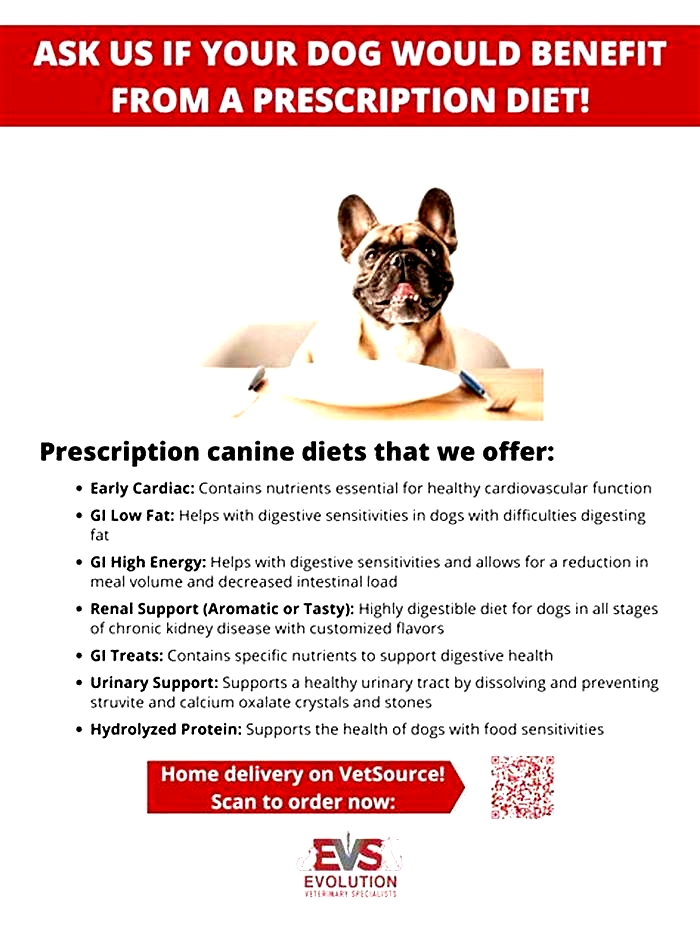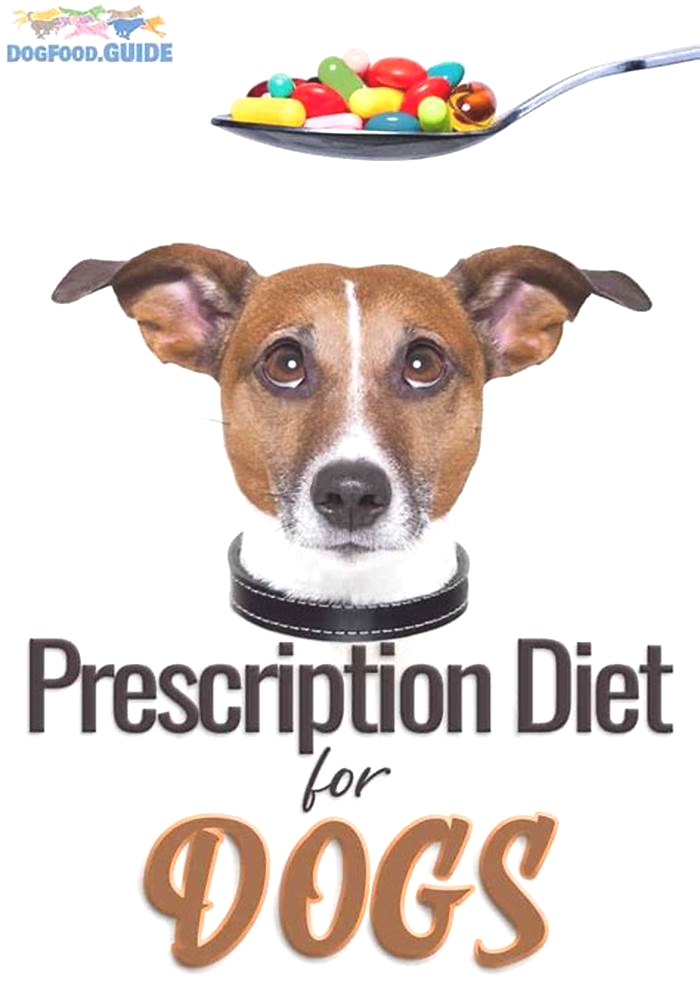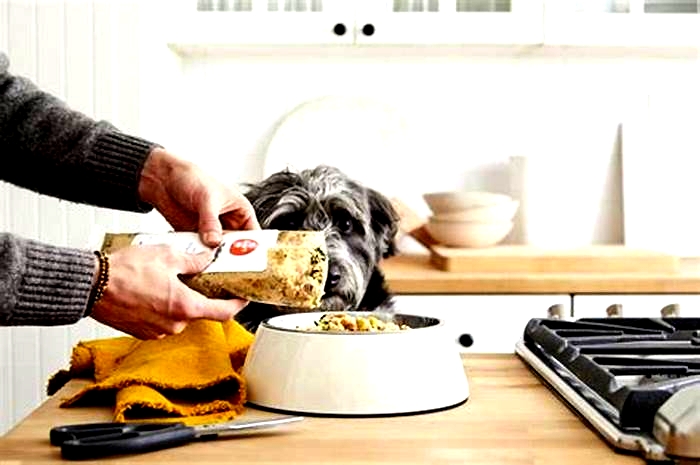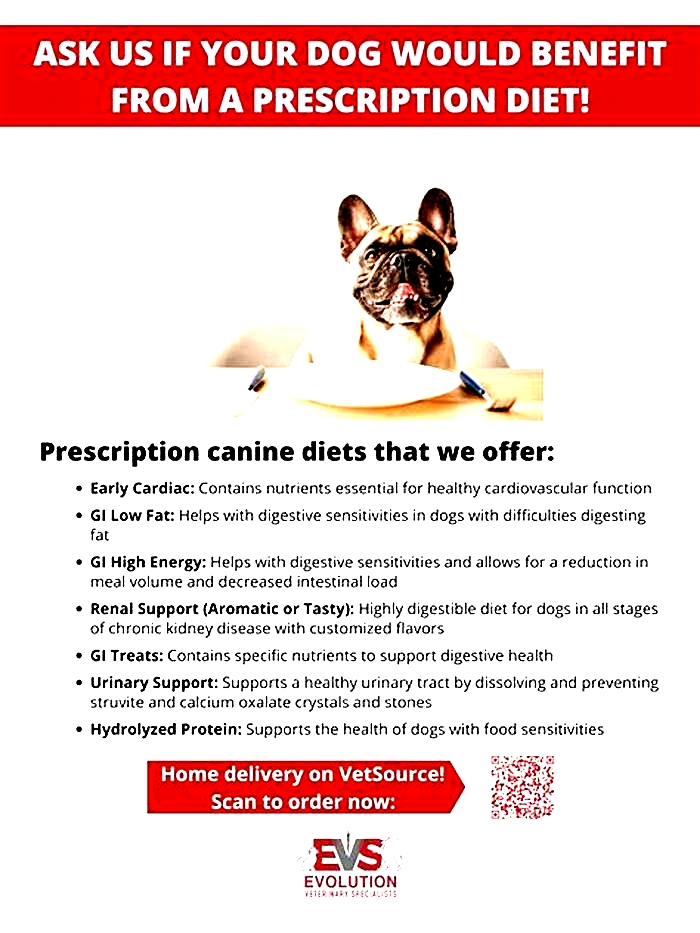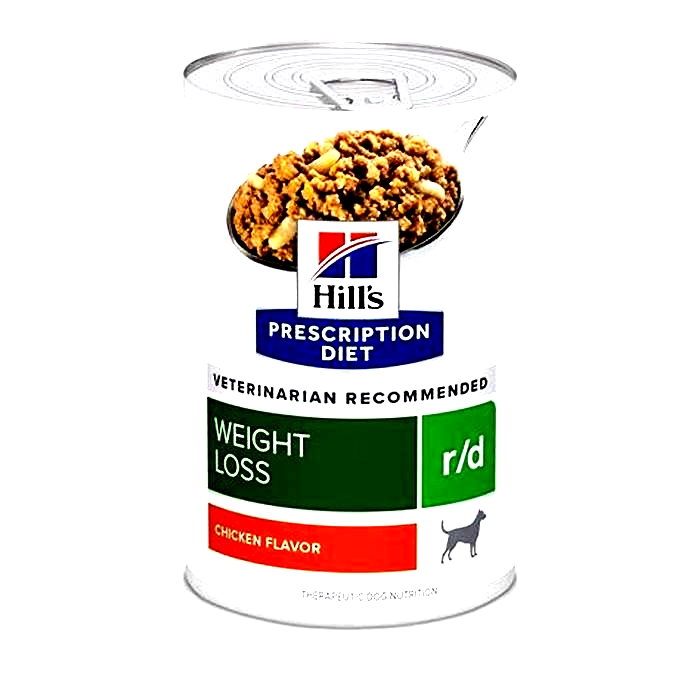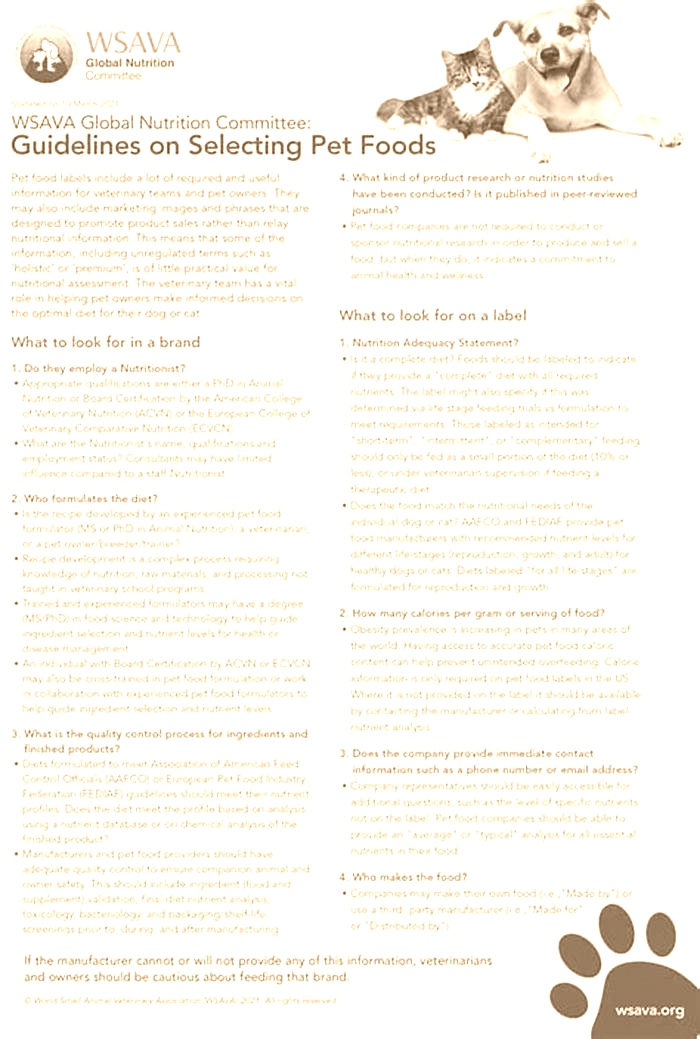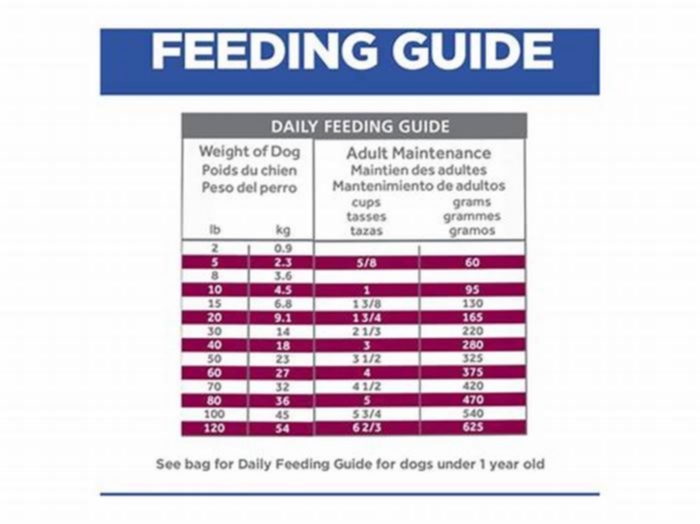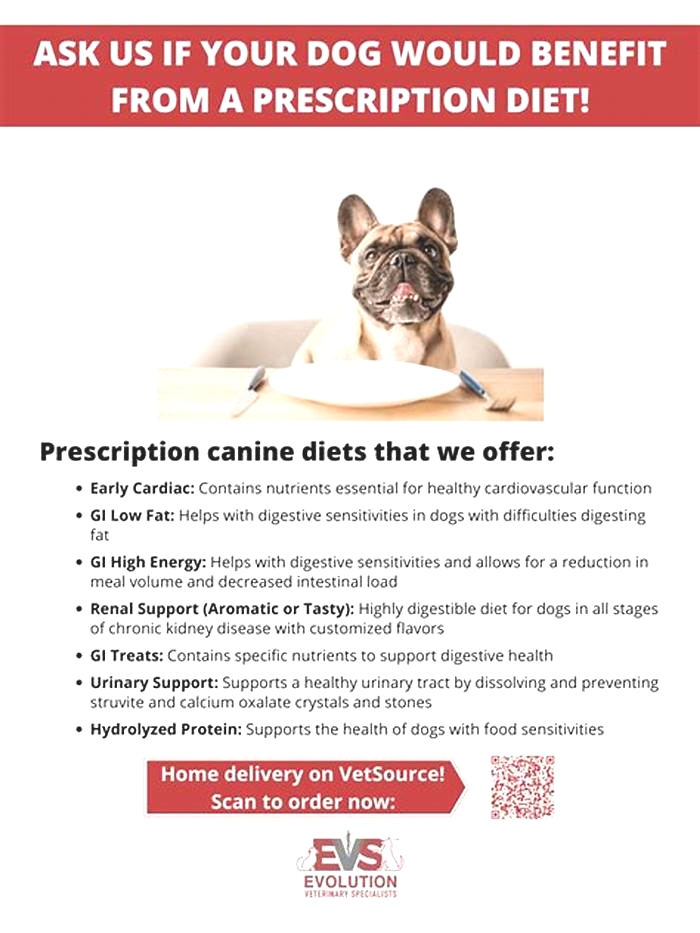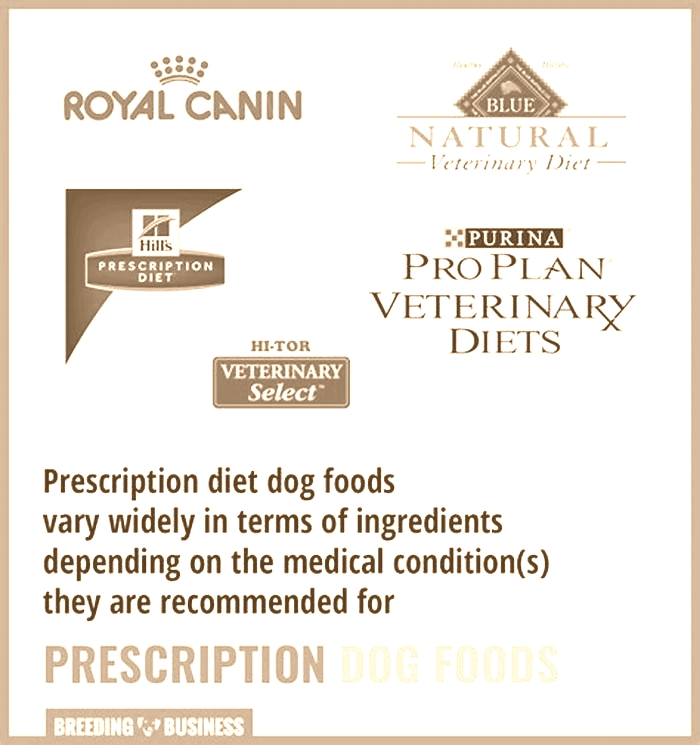Prescription Dog Diets A Comprehensive Guide for Pet Parents

Prescription Diet Dog Food Guide and Recommendations
Maria is a freelance writer who loves having dogs around. She loves how fun and rewarding to bring a dog into the family. She makes extensive research on how to better care for your little furry. She is dedicated to helping you have the best life together.
Latest posts by Maria Reverberi
(see all)Just like specialized diets prescribed by your doctor (such as low carbs or no sugar foods) dogs with a chronic disease or terminal illness must also follow certain specific diets prescribed by their vets. Prescription diet dog food is used to be most readily available in vets offices, but now you can find a wider selection online and even from some small-batch dog food companies, likeJust Food for Dogs.
Prescription dog foods vary in ingredients and are prescribed by vets depending on your pets medical needs. Unlike regular dog food, prescription food cannot be bought at the stores without a doctors prescription. Specialized medical dog food contains higher/lower proteins and many other components geared towards helping elderly dogs or dogs with medical issues that prevent them from having a healthy lifestyle.
What Is Prescription Dog Food?
Prescription dog food is dog food made with a special formulary that, because of its custom ingredients, does not meet the AAFCO (Association of American Feed Control) guidelines for commercial dog food. This is why when you go to the pet store, you are not allowed to purchase prescription dog food without written proof of your vets directive. The food is kept behind the register or at the stores Veterinary counter. At Petsmart, for example, the prescribed food is sold behind the vets counter. And while other stores have prescription foods on their shelves, once you get to the register you must present the written prescription from your dogs vet or you will not be allowed to buy it.
Unfortunately, the internet has made it possible for irresponsible dog owners to buy prescribed food without consulting their dogs veterinarian. Merchants like Petco or Petsmart require proof of the prescription prior to approving the order. Stores like Amazon sell prescribed diet food and assume no responsibility because its the dog owners duty to consult the experience of a vet. However, other stores likeChewy.comwill request a vets prescription before they release the order.
Can My Other Dogs Eat the Prescription Food Too?
No.
Remember when we mentioned that prescription diets dont meet AAFCO guidelines? Thats an important detail. Any bag or can of dog food that you purchase in the U.S. has to meet AAFCO guidelines to ensure that it is safe to feed a dog. If you allow an otherwise healthy dog to eat prescription dog food regularly, they will become seriously malnourished and eventually very ill.
Dont give in to the droopy, sad eyes, face or whining. Giving your pooch prescribed food when he/shedoesnt need it will make him/her sick. Therefore, be diligent if you have more than one dog. Make sure to supervise yourdogs or separate them when feeding time comes along so your healthy pooches dont eat food that can kill them. Allowing your healthy dogs to digest prescribed food could also be detrimental to their health if it doesnt kill them. This is the reason why prescription food is mostly accessible at veterinary hospitals.
What Illnesses Require Prescription Diet Dog Food?
Prescription dog food can be used as either a standalone treatment or in support of a series of treatments for a wide range of medical problems.
Digestive Disorders or Gastrointestinal Issues
Just like humans, some dogs have sensitive digestive systems and are prone to infections or mild to severe stomach issues.According to PetMD, Pancreatitis develops when the organ becomes inflamed, which can occur for a number of reasons (obesity, infection, trauma, metabolic disorders, etc.) or seemingly out of nowhere. When the pancreas gets inflamed, something causes the enzymes inside the pancreas that digest the food to break down outside the stomach resulting inthe absorption of other organs in the body including the liver and kidneys.
If not taken care of right away, the progression is immediate and deadly. Symptoms vary in dogs, but if your pooch has been vomiting, has lost weight, has had diarrhea, has been fatigued and or has had difficulty breathing amongst other things, your vet will do a blood work and stool test to determine the cause. When caught early, pancreatitis can be taken care and your pooch cured. This is when vets prescribe a special medicated diet food. Other digestive system disorders include gastroenteritis, acid reflux, inflammatory bowel disease (IBD), etc.
Kidney Disease/Failure
Renal disease or failure in dogs often demands a low-protein diet provided by the best low-protein dog food. Commercial dog foods, even those with the lowest protein content, still contain more protein than a dog with failing kidneys can handle.
Since an otherwise healthy dog will become severely malnourished if fed a low-protein food for too long, low-po dog food is only available by prescription. There are also specialty hepatic formularies that restrict not just protein, but also copper, fat, and phosphorus, which can also be dangerous for already burdened kidneys.
Weight Loss
Depending on the pounds your pooch has gained, your vet will prescribe a special diet for your little one. If its a matter of one or two pounds, most likely your vet will tell you to cut down the portionof food you are feeding your dog. However, usually, more than a two-pound increase will alert your vet because having a fat dog is not cute or cuddly, but dangerous instead.
Fiber based diets assist with the carbohydrates absorbed which help moderate glucose consumption in dogs. If you notice your best friend a bit plump, check to see if you cannot feel his/her ribs. If you feel around his/her side and cant determine where the ribs are or the waist is, your dog is most likely overweight. In addition, youll notice him/her having difficulty walking and is slow, and sleeps more than his/her normal routine. Maintaining your dogs weight is imperative because dogs get sick like humans and can develop arthritis, diabetes and heart disease. If that happens you can switch them to the best diabetic dog food to help remedy and reverse the problem.


Hills Prescription Diet w/d Canine Digestive/Weight/Glucose Management Chicken 12x13oz
Buy from Amazon
Urinary Tract Infections and Bladder Stones
Sadly dogs also get urinary tract infections and bladder stones just like humans. Female canines are more prone to it than the males. When urinary tract infection invades your dog, certain prescribed foodshave reducedlevels of magnesium and certain types of bacteria that fight the bad germs and regulate the nutritionalmanagement of calcium oxalate and other chemicals needed to maintain your dog healthy.


Hills Prescription Diet u/d Canine Non-Struvite Urinary Tract Health 8.5lb
Urinary tract and bladder health
Buy from Amazon
Cancer
Dogs with cancer or cancerous tumors can be switched to a neoplastic dog food. Research has suggested that cancer cells are fed by carbohydrates, and commercial dog foods are usually very high in carbs (even the best ones). A neoplasia support prescription dog food is generally very high in Omega 3 fatty acids and very simple, restricted carbohydrates. They are also generally formulated with fewer antioxidants than can be found in the top-of-the-line low-carb commercial options, since these can (and will) interfere with chemotherapy treatments.
Allergies
Sometimes dogs develop sudden allergies to food or other ingredients. A sensitive digestive system means your dog will not eat. Other times, your pooch will throw up or get diarrhea after he/she eats.When this happens, a medical diet will be prescribed by your dogs vet. My Harley for example, developed allergies to poultry when she was seven years old. It took a year or so to narrow down the ingredients she was allergic to and to find the foods she could eat without throwing up. For a while, she ate prescribed venison, but a few years later, her stomach did not like it either. Today she is on the Hills Digestive Care i/d and sliced apples which she loves. Dinner or lunch time is no longer stressful and instead, at 13.5 years old she continues to be her spunky self.


Hills Prescription Diet z/d Canine Small Bites dog food 7 lb (3.17 kg) bag, Small
Buy from Amazon
Which Brands Sell Prescription Dog Food?
Hills Prescription Diet (or Hills Science Diet) and Royal Canin are currently the only two mainstream dog food brands with a prescription line. If youre buying food directly from your vets office, it will almost certainly be one of these two brands. You can also find these foods on Chewy.com, though you will need to provide a copy of your Rx before completing your purchase.
If convenienceis less important to you than the quality of the food, you should consider going independent.Darwins Natural Pet Productsand Just Food For Dogsboth carry prescription dog food made with their proprietary, human-grade, whole food blends. Like Hills and Royal Canin, they will also requirea prescription before they can be dispensed. Darwins Natural food can be purchased either online or in person from their Tukwila, WA store; JFFD food can be purchased online or in person from one of their kitchens in Southern California.
How Do I Get Prescription Diet Dog Food?
Medical diets are prescribed when your veterinarian decides your little furry one has no other option. Most vets will advise dog parents prior to going that route. Sometimes a change of regular store bought food, brand or organic kibbles is all your dog needs. After all, if we ate chicken salad 365 days a year, wed be pretty sick of the food as well.
If you feel that your dog is suffering from an illness that can be treated with a special diet, your first step is to make an appointment with your vet. If your vet confirms the diagnosisandagreesthat such treatment is the best course of action, they will write you a prescription for the special dog food. Like a prescription for human medication, this script can be taken anywhere the specialized food is dispensed.
Of course, dogs will be dogs, and they do tend to get tired of the same food. If they refuse to eat their prescription food, you may want to switch them to another type or flavor. This does not mean you should not consult with your doctor first, and do not take them off the prescription food unless your vet gives the green light. Remember, its better to be safe than sorry when it comes to the care of your loved one.
Continue reading:
Top 5 Rated Best Non-Prescription Diabetic Dog Food
Hills Prescription Diet Digestive Care with Turkey Dog Food Review
The Best Dog Food To Prevent Seizures In Your Pooch
What's the best diet for a diabetic dog? A vet's guide
What's the best diet for a diabetic dog? If your pet has recently been diagnosed with diabetes it's common to ponder what to feed them in order to maintain their health. Although the treatment of diabetes mellitus in dogs predominantly relies on insulin therapy, a diet of the best diabetic dog food can have a significant impact on disease management.
Whether you're keen to learn more about which foods are best for your diabetic pup or you're wondering about the best diabetic dog treats, keep reading to learn more about which diet will work for your pooch.
What is diabetes mellitus in dogs?
Before we dive into appropriate diets for diabetic dogs, it is important to understand what diabetes is. Diabetes mellitus in dogs is an endocrine disorder in which a lack of insulin production or insulin resistance results in hyperglycemia, or high blood glucose levels.
Most dogs are affected by insulin-dependent diabetes, which is similar to type 1 diabetes in humans. It occurs when the beta cells of the pancreas, which produce insulin, are destroyed, resulting in a deficiency of insulin.
There is no cure for diabetes in dogs, and diabetic dogs require lifelong insulin injections. No diet will eliminate the need for insulin therapy, but a suitable diet can help manage the condition.
What's the best food for a diabetic dog?
In short, there is no single best food for dogs with diabetes. The most important consideration when selecting a food for a diabetic dog is that they find it palatable and eat it consistently.
1. Consistent feeding
Most dogs with diabetes receive insulin injections every 12 hours. Ideally, a meal containing 50% of a dogs daily energy requirement should be fed before each injection. However, some dogs may require additional small meals or treats between injections to prevent life-threatening hypoglycemic episodes.
Diabetic dogs insulin, food (including treats!), and exercise should be kept consistent from day to day to minimize abnormal fluctuations in blood glucose and keep their condition under control.
2. Veterinary prescription diet
There are a few veterinary therapeutic (prescription) diets on the market that have been formulated specifically for dogs with diabetes mellitus. They are often high in insoluble fiber, which slows digestion and the absorption of glucose into the bloodstream, preventing sudden spikes in blood glucose and subsequent hypoglycemia (i.e., low blood sugar).
These diets also tend to utilize complex carbohydrates over simple sugars for the same purpose. Veterinary therapeutic diets undergo more extensive testing than commercial diets, and their ingredients are more consistent between batches, which is beneficial in regulating blood sugar. Although they are a good choice for many dogs, they may not be appropriate for others.
Factors that determine a diabetic dog diet
Several factors can influence an individual dogs ideal diet, including weight and co-existing diseases:
1. Weight
Whether a dog needs to gain, lose, or maintain weight can help determine which diet is best for them. Some newly diagnosed diabetic dogs may be underweight, so they should be fed a diet that will allow them to gain weight.
Overweight dogs, on the other hand, should be encouraged to lose weight. Although being overweight or obese does not increase the risk of diabetes in dogs, it can cause insulin resistance, making it more difficult to regulate diabetes once it has developed.
According to the 2018 American Hospital Association (AAHA) Diabetes Management Guidelines for Dogs and Cats, obese dogs should lose weight gradually (1-2% reduction per week).
Insulin requirements decrease when excess body fat is shed, so close monitoring is required in these dogs to avoid insulin overdose and hypoglycemic episodes, with the insulin dose adjusted as necessary according to your vets recommendation.
2. Medical history
There are some diseases that, when presenting alongside diabetes, can affect which diet should be fed.
For example, dogs with a history of pancreatitis or hyperlipidemia should be fed a low-fat diet, and dogs with heart disease should be given diets with a low sodium content. Other diseases that require consideration include chronic kidney disease and inflammatory bowel disease, among others.
What foods should dogs with diabetes avoid?
As we have discussed, the appropriate diet for a diabetic dog relies on many factors. There are some foods that should be avoided, however:
Foods that are high in simple sugars
Foods that are high in simple sugars, such as semi-moist foods, should be avoided because they cause surges in blood glucose after consumption. This can also happen with carbohydrate-rich treats and easily digestible diets (i.e., some sensitive stomach foods).
Fiber
Another ingredient to consider is fiber. Many veterinary therapeutic diets are high in fiber, which is often associated with lower calorie content. For this reason, some of these diets (and other high-fiber diets) are not suitable for underweight diabetic dogs. In dogs benefiting from high fiber content, high-fiber commercial diets should be used over fiber supplements.
Commercial diets are formulated to include all essential nutrients in the correct proportions, and added fiber can interfere with the absorption of these nutrients. In addition, some human fiber supplements contain sweeteners like xylitol, which is toxic to dogs.
Home-cooked diet
Lastly, home-cooked diets are not recommended for diabetic dogs because they can have a great amount of variability between batches and they do not undergo rigorous testing like commercial diets.
If an owner is adamant about feeding their diabetic dog a home-cooked diet, they should consult with a board-certified veterinary nutritionist before doing so.
Are eggs or chicken good for diabetic dogs?
Although eggs and chicken are good sources of protein with minimal carbohydrates, adding other foods or treats to a diabetic dogs diet can affect how their normal food is absorbed and utilized, thus influencing their diabetic control.
Most commercial diets are complete and balanced, so the addition of these foods is unlikely to provide any benefit. If you wish to feed your diabetic dog eggs or chicken, this should be done in moderation and on a consistent basis (i.e., the same amount fed at the same time each day) under your vets supervision.
Changing your diabetic dogs diet
Every diet will have a different effect on a dogs diabetic control. If you decide to feed your diabetic dog a new food, it is very important to maintain contact with your veterinarian throughout the process so that they can monitor your pups blood glucose levels and adjust their insulin dose if required.
Dogs with well-managed diabetes should ideally be kept on the same diet unless their needs change. Your veterinarian can discuss your dogs individual requirements with you and provide insight into which diet is best for them.

